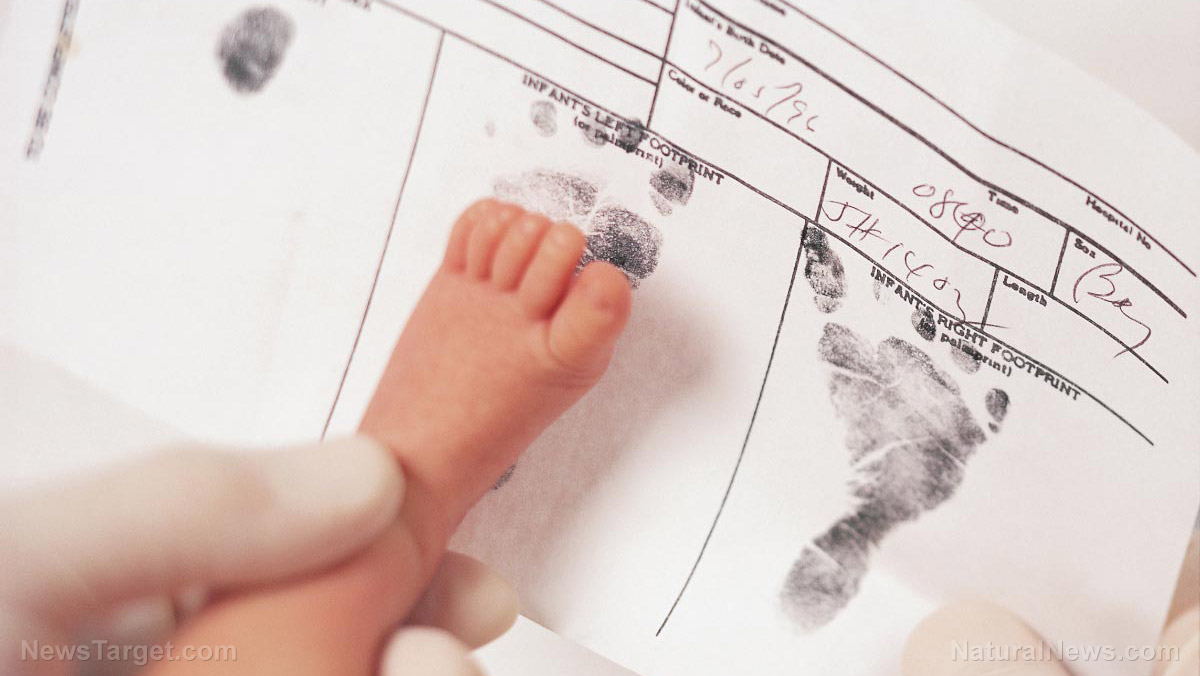Mass genetic surveillance: Police now seeking access to newborn blood samples to build DNA database for future criminal investigations
08/04/2022 / By Mary Villareal

Almost every baby born in the United States has blood drawn just hours after birth, allowing them to be tested for a panel of potentially life-threatening inherited disorders. This is an important public health program that enables early treatment of newborns with genetic disorders.
For them, it can be the difference between a healthy life and an early death.
However, reports emerged that police are now seeking access to these newborn blood samples in criminal investigations. They intend to use the genetic material to hunt for evidence that could implicate a child’s relative in a crime, endangering public trust in a health program and threatening all Americans’ rights to genetic privacy.
Earlier in July, a public records lawsuit filed in New Jersey detailed how police subpoenaed a newborn blood sample to investigate a 1996 cold case.
Under New Jersey law, every child born must be tested for 60 disorders within 48 hours of their birth. And this decades-old program has been meant to identify rare and potentially serious conditions in newborns only.
While the law enforcement’s desire to use blood samples in criminal investigations was always a possibility – and one that the American Civil Liberties Union (ACLU) has opposed – the increasing use of investigative genetic genealogy (IGG) has since increased the government’s interest in easy access to DNA.
One high-profile example is the 2018 identification of the Golden State killer and former police officer Joseph James DeAngelo Jr., whose DNA was isolated from a sample left at a crime scene. A rich genetic profile was created and uploaded to a genealogy website to map out family trees. In the four years since its use became public, its documented use by police has rapidly grown to nearly 200 investigations.
While the government has already gone to shocking lengths to obtain DNA samples without a warrant, such as lying to a suspect’s family members to obtain their DNA, the New Jersey investigation was the first public instance of them turning to newborn blood samples. (Related: Newborn screening can cause unnecessary parental stress.)
DNA contains sensitive information that must remain private
DNA holds sensitive personal information, which is why the newborn screening program exists. It can help detect inherited medical conditions from blood samples that could lead to things like permanent intellectual disability and major health problems if not detected early enough.
Allowing the government to access samples with sensitive information for reasons other than public health would seriously threaten privacy. It’s also important to note that DNA not only reveals information about a certain person, but the other family members as well.
“Because DNA contains intimate, private information about not only the newborn but their family, we need to make sure that that private information is protected from government intrusion, whether it be in this context or a wide range of others,” said Jeanne LoCicero, legal director of ACLU-New Jersey.
The newborn screening system relies on public trust and exists only because public health officials agree that the good outweighs the bad – and the temporary pain to the newborn and the cost to the parents are worth the prevention of life-threatening medical conditions, as almost one in 300 newborns are found to have a genetic disorder.
However, this delicate balance of public trust is thrown off when the government turns to the same data to screen newborns for illnesses and uses it for other purposes, such as criminal investigations. (Related: Explosive report: 98% of newborn babies are genetically screened.)
There is no uniform national policy for how newborn screening is conducted as each state sets its own policies governing which diseases it tests and the time the samples are kept.
Parent groups and other privacy advocates have long voiced their concerns about these state screening systems. They argued that keeping blood samples left over from screening tests violates privacy rights. The range of storage for states varies from a few months to indefinitely.
Newborn screening remains to be one of the most successful public health interventions in the U.S., but police could easily abuse this system and turn it into mass genetic surveillance.
Visit PoliceState.news for more news about questionable methods used in police investigations.
Watch this video about police grabbing people’s DNA at checkpoints.
This video is from the channel high impact Flix and more!!! on Brighteon.com.
More related stories:
Scientists seek to collect a ‘blood database’ of all U.S. newborns for ‘research’ purposes.
Texas ordered to destroy five million blood samples illegally taken from babies without consent.
Waiting two minutes before cutting umbilical cords improves early newborn development.
Sources include:
Submit a correction >>
Tagged Under:
ACLU, big government, blood samples, crime investigations, DNA, genetic profiling, genetic sampling, insanity, Investigative Genetic Genealogy, national security, Police, police state, privacy watch, surveillance
This article may contain statements that reflect the opinion of the author
RECENT NEWS & ARTICLES
COPYRIGHT © 2017 INSANITY NEWS





















